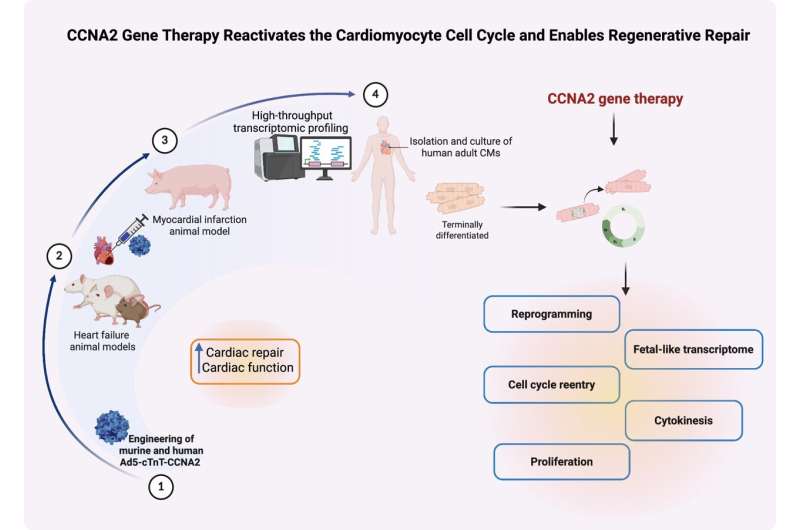However, there may be new hope for these patients. Researchers from the Icahn School of Medicine at Mount Sinai in New York have been working to turn back time by switching on a gene known to regenerate heart muscle cells, or cardiomyocytes. Their study, recently published in npj Regenerative Medicine, indicates that adult human hearts may be given the ability to regenerate themselves with future therapies.
CCNA2—the ‘master regulator’ of the heart cell cycle
The study focuses on a gene called Cyclin A2 (CCNA2), which is functional during fetal growth and shuts off shortly after birth, limiting the ability for cell regeneration. In fetuses, while CCNA2 is still functional, it plays an important role in cell division and growth, facilitating the creation of new heart cells. However, adults appear to still have a very limited capacity for repair.

